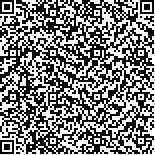| 摘要: |
|
| 关键词: |
| DOI: |
| Received:September 22, 2009Revised:March 20, 2012 |
| 基金项目:This work was supported by the National High Technology Research and Development Program of China (863 Program) (No. 2009AA043001), the Program of the International Science and Technology Cooperation (No. 2009DFA12520), the Shanghai Science Committee Science and Technology Attack Plan (No. 10511501002), the International Cooperation Projects of Shanghai Science and Technology Programs (No. 10160704500), the Ningbo Natural Science Foundation (No. 2009A610074), the Zhejiang Excellent Young Teachers in Universities and Colleges Funding Program (No. 20101215), and the Scientific Research Fund of Zhejiang Provincial Education Department (No. Y201119567). |
|
| Interval analysis using least squares support vector fuzzy regression |
| Yongqi CHEN,Qijun CHEN |
| (College of Science and Technology, Ningbo University; Department of Control Science and Engineering, Tongji University) |
| Abstract: |
| A least squares support vector fuzzy regression model (LS–SVFR) is proposed to estimate uncertain and imprecise data by applying the fuzzy set principle to weight vectors. This model only requires a set of linear equations to obtain the weight vector and the bias term, which is different from the solution of a complicated quadratic programming problem in existing support vector fuzzy regression models. Besides, the proposed LS–SVFR is a model-free method in which the underlying model function doesn’t need to be predefined. Numerical examples and fault detection application are applied to demonstrate the effectiveness and applicability of the proposed model. |
| Key words: Interval analysis Least squares Fuzzy regression Fuzzy sets |

